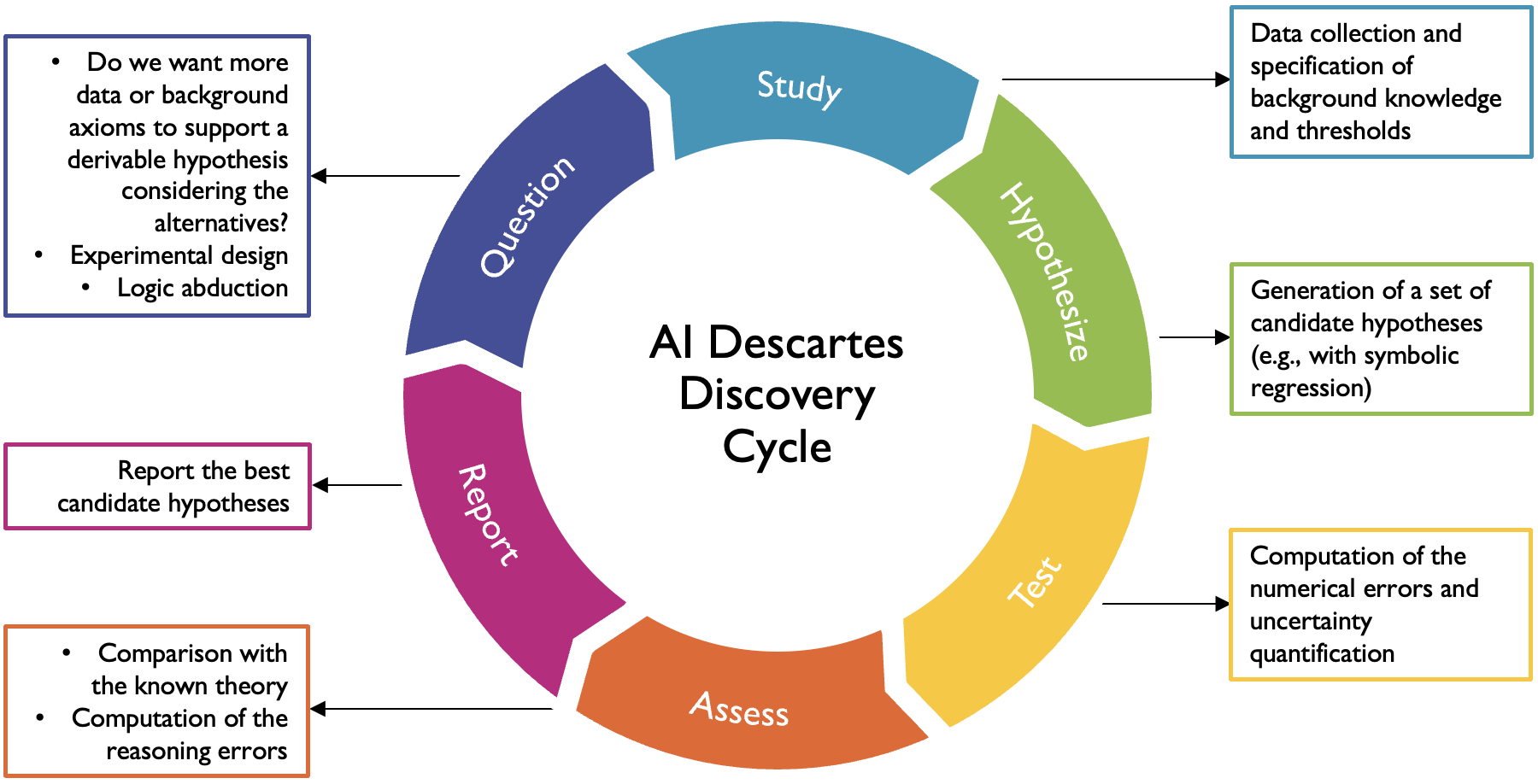AI Descartes: Combining Data and Theory for Derivable Scientific Discovery
Scientists have long aimed to discover meaningful formulae which accurately describe experimental data. A common approach is to manually create mathematical models of natural phenomena using domain knowledge, and then fit these models to data. In contrast, machine-learning algorithms automate the construction of accurate data-driven models while consuming large amounts of data. The problem of incorporating prior knowledge in the form of constraints on the functional form of a learned model (e.g., nonnegativity) has been explored in the literature. However, finding models that are consistent with prior knowledge expressed in the form of general logical axioms (e.g., conservation of energy) is an open problem. We develop a method to enable principled derivations of models of natural phenomena from axiomatic knowledge and experimental data by combining logical reasoning with symbolic regression. We demonstrate these concepts for Kepler's third law of planetary motion, Einstein's relativistic time-dilation law, and Langmuir's theory of adsorption, automatically connecting experimental data with background theory in each case. We show that laws can be discovered from few data points when using formal logical reasoning to distinguish the correct formula from a set of plausible formulas that have similar error on the data. The combination of reasoning with machine learning provides generalizeable insights into key aspects of natural phenomena. We envision that this combination will enable derivable discovery of fundamental laws of science and believe that our work is an important step towards automating the scientific method.
PDF Abstract
